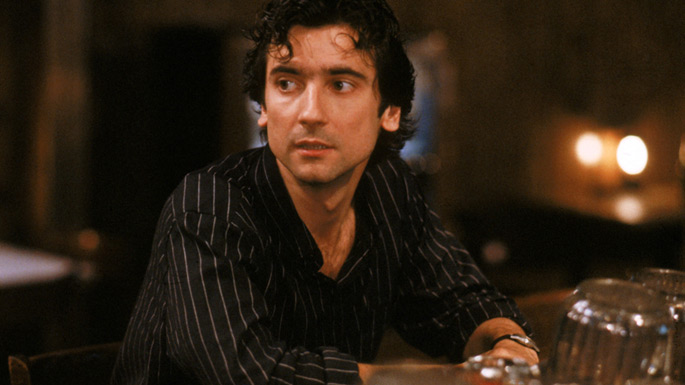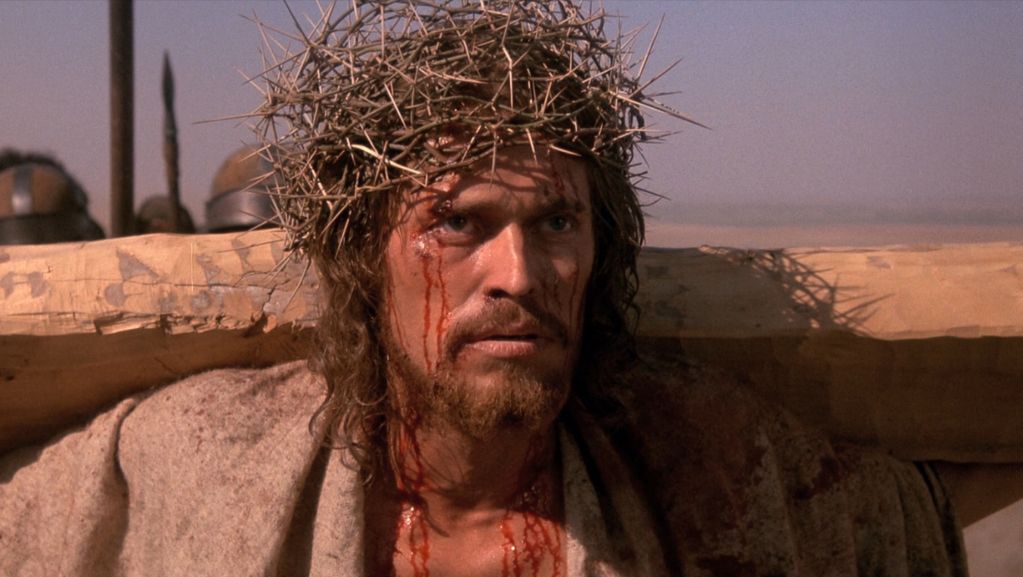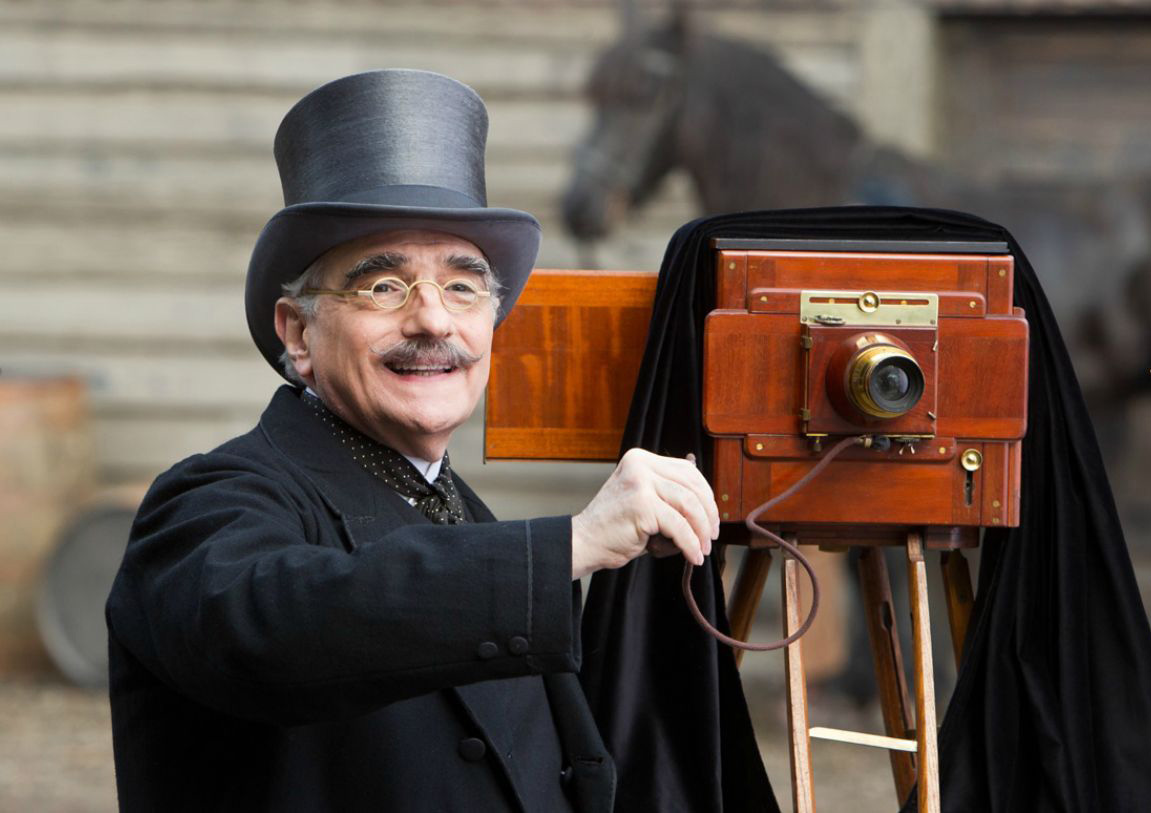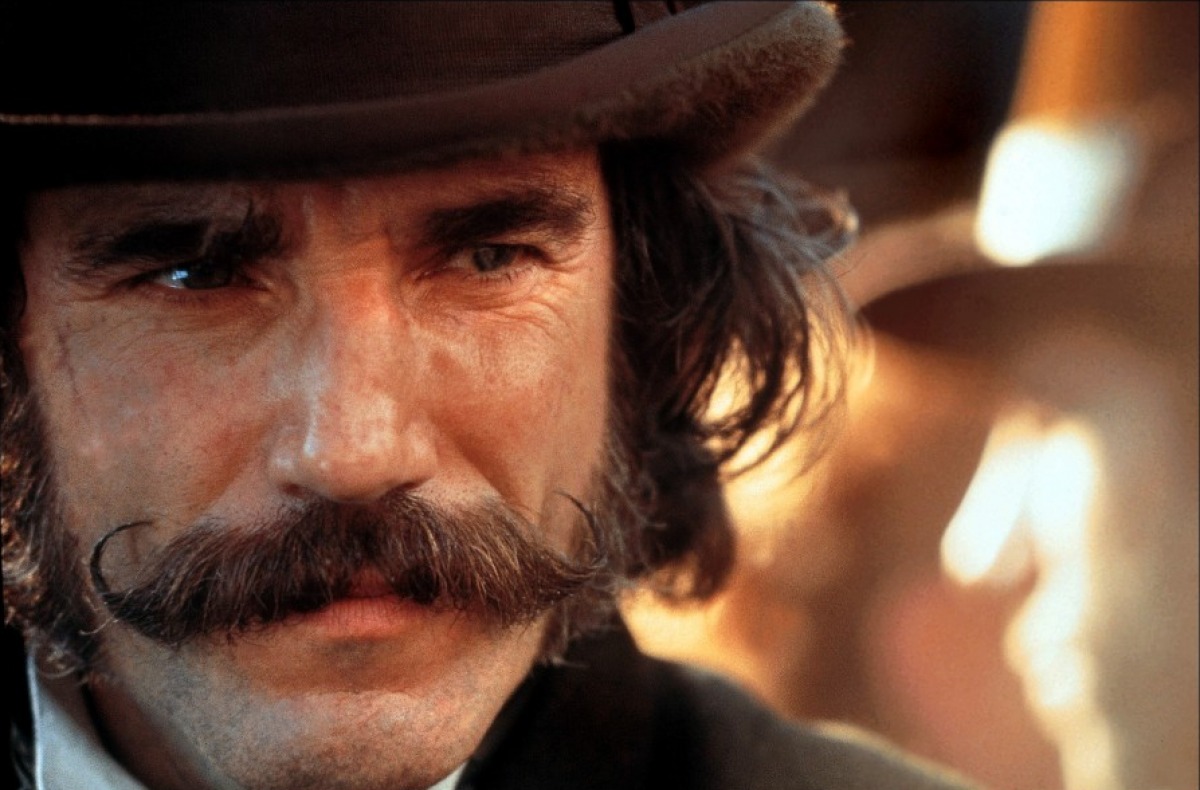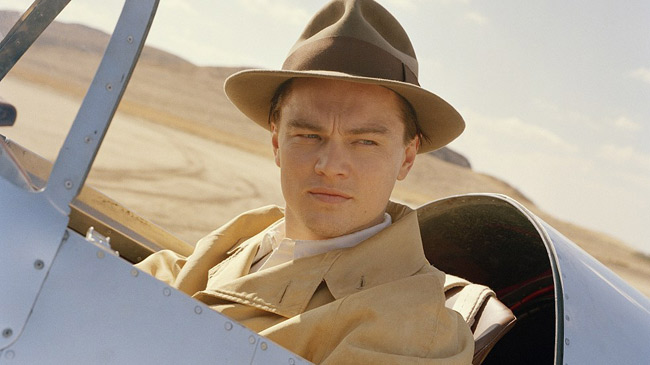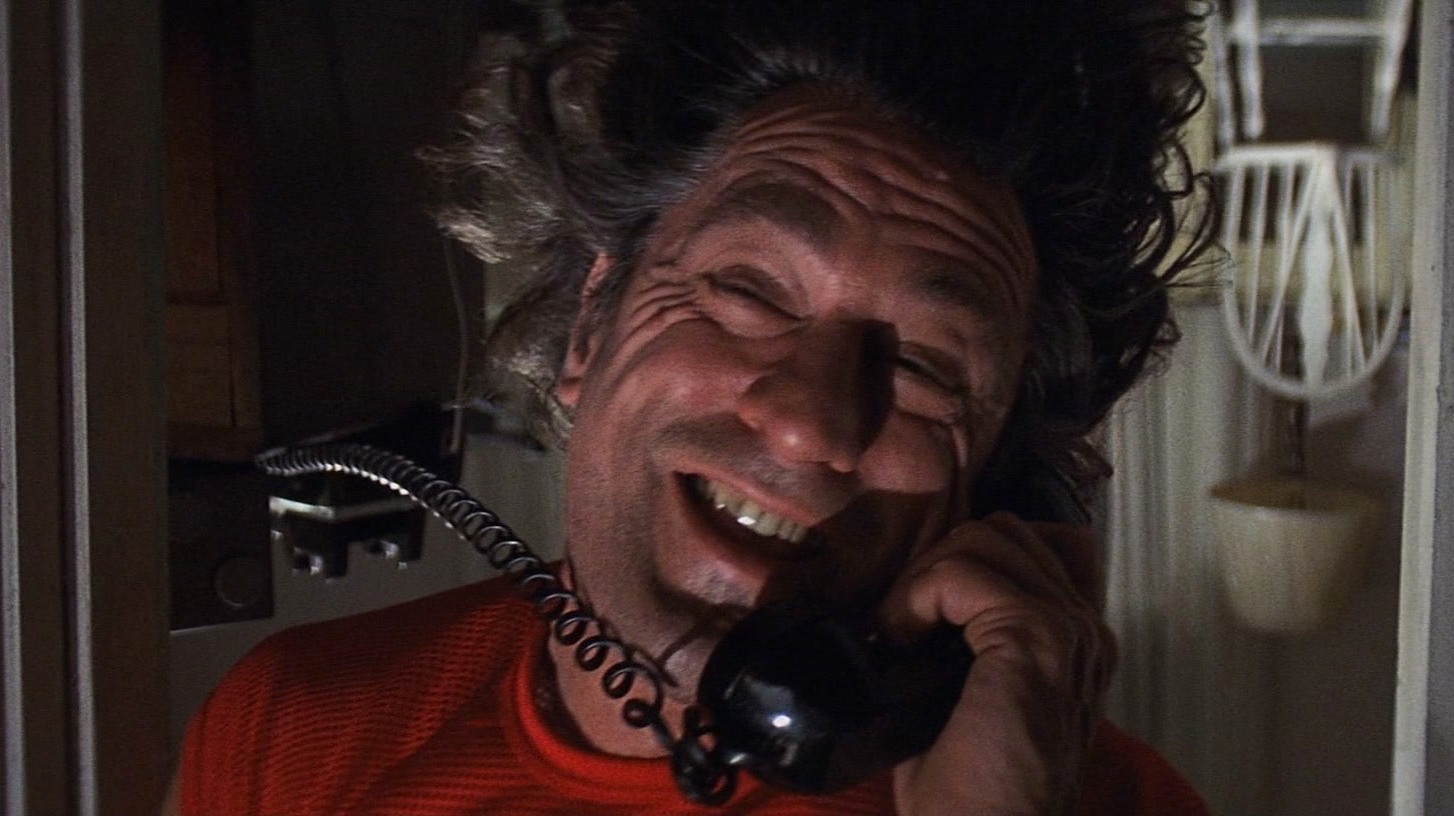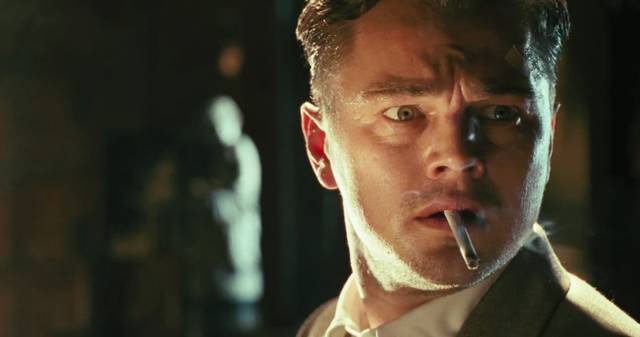Martin Scorsese has produced more cinematographic masterpieces than any of his contemporaries or indeed than any director alive today and is the most consistent director to come out of the ’New Hollywood Cinema’ trend which dominated the 1970’s and was the last ’Golden Age’ of American cinema. The range of his output is unmatched and his constant presence in documentaries about film or involvement with miriads of film restoration projects show a man who has absorbed the history of cinema and dedicated his life and soul to the seventh art.
Scorsese is one of the few directors who managed to seamlessly interweave the artistic side of cinema with the entertainment side and thus reach untold numbers of cinemagoers. He is not an ivory tower figure, the strongest proof for this being his ability to inspire and communicate with all the people invilved in the production of a movie. Probably the best known director/actor duo in the history of cinema is that of Martin Scorsese and Robert DeNiro, a collaboration between the most successful direcor of his generation and one of the most iconic screen actors of all time. They have produced 8 movies together, more than half of them masterpieces.
Then he went on to do it again, his collaboration with Leonardo DiCaprio closely following the previous one in outstanding results. Such human warmth might be quite unexpected from a director who has made a name for himself by creating some of the most memorable anti-heros ever seen a the big screen. In the tradition of great novelists such as Dostoievsky or Kafka, Scorsese, with the help of the two great scriptwriters Paul Schrader and Mardik Martin has sought to explore the human psyche by paying special attention to its darker sides.
This is of course balanced out by his religious movies ’The Last Temptation of Christ’ and ’Kundun’, idiosyncratic explorations of the uplifting humanity of great religious figures. Scoresese’s Catholicism is one of the strongest undercurrents in his movies, as is his love for music which he has used imaginatively and effectively in most of his movies. Though not inclined to shock, some of his movies have caused serious controversy, most famously and recently ’The Wolf of Wall Street’. It mostly reflects on people’s unwillingness to explore his movies deeper before passing casual judgement mainly fueled by a superficial and scandal-prone media.
This list is an introduction to his essential movies, but also an invitation to explore Scorsese’s whole filmography as each and every one of his films has a great deal to offer.
15. After Hours (1985)
Essentially a black comedy about the highly ridiculous nocturne meanderings and mishaps Paul Hackett (Griffin Dunne) has to go through just to get some action, this film helped Scorsese get his mojo back. The thin plot involves a mysterious b ut ultimately insane blonde who lures hackett out of his familiar Manhattan environment and into SoHo, then leaves him stranded.
From here on, he gets involved with various shady characters, more treacherous blondes and also Cheech and Chong in bizarre cameo roles. The menacing atmosphere, sublime camera work and editing and metaphysical connotations make it one of Scorsese’s most underrated gems. It was widely panned by critics who saw it as an empty stylistic exercise, but it’s an exercise that would make most contemporary directors bring out their notebooks.
14. The Last Temptation of Christ (1988)
A faithful adaptation of Nikos Kazantzakis’ controversial novel, the film depicts Jesus Christ (Willem Dafoe) as perpetually self-doubting, still trying to come to terms with His divine destiny, fighting off His fascination with sexuality and other worldly temptations. It ultimately fails to offer a glimpse into His divine nature, the dialogue and much of the plot are quite pedestrian and it dwells unnecessarily on human temptations in a long what-if type vision, at least for more religiously inclined viewers.
Harvey Keitel’s performance as Judas is noteworthy, as are David Bowie’s interpretation of Pontius Pilate and Barbara Hershey’s turn as Mary Magdalene. However, it is a thought-provoking movie for those who like to avoid the pitfalls of dogmatism.
13. Hugo (2011)
A personal love letter to cinema by one of its true masters, Scorsese’s first 3D motion picture and a throwback to the mythical age of George Melies and the Lumiere Brothers, the pioneers of film-making, ’Hugo’ establishes itself as a visual tour de force right from the first long shot which takes us htrough the innards of a gigantic cloack, then through Paris by night, the crowded Gare Montparnesse and back to the clock. It then proceeds to tell the story of Hugo (Asa Butterfield), the son of a clockmaker (Jude Law) who has passed away in a fire.
The only thing left to remind him of his father is an intricate automaton which might hide some revealing secret about his father. The quest is made more difficult by a nemesis embodied by a mean station master (Sasha Baron Cohen, in good form). What the film is lacking when compared to other Scorsese movies is a capacity to truly involve the viewer, a sense of deep and meaningful conflict one should care about. However, the dazzling visuals and the sympathetic characters make it a memorable viewing experience for the whole family.
12. Gangs of New York (2002)
It is an epic-scale revenge story doubling as an insightful look at the history of New York’s multiethnic gangs during the 1860’s. A young Amsterdam Vallon(Leonardo DiCaprio), son of an Irish priest (Liam Neeson), watches his dad emphatically executed at the end of a gang war played out on the wintry streets of lower Manhattan in a trademark Scorsese long shot. His father’s killer is ’Bill the Butcher’ (Daniel Day-Lewis), leader of the ’Natives’ gang and over-the-top psycho villain with a manic, clownish grin.
Vallon quietly insinuates himself into the butcher’s good graces after having spent most of his youth in institutions. This epic drama about the old-fashioned ways of fighting for power has been gestating in the director’s mind since the 1970’s and though it’s occasionally too ponderous and not engaging enough, it is a solid achievement especially suited for history buffs.
11. The Aviator (2004)
An engaging, epic biopic about one of America’s true mavericks, media mogul, airplane pilot, airline owner and massive nutcase Howard Hughes (Leonardo DiCaprio), the movie is a huge nod to the legendary masterpiece of American cinema, Citizen Kane. We have the vigorous dynamism, the ambitious scale and even the somewhat cheesy Freudian overtones in the characterization of the central character and a brash, dominant leading actor.
The story moves with breezy panache from ballrooms, to airstrips and into airplane cockpits, to boardrooms and courtrooms in an attempt to make a movie as flamboyant as what Golden Age Hollywood used to offer. A strong supporting cast which includes a rather baroque performance by Cate Blanchett as Hughes’s most significant love interest, grande dame Katharine Hepburn helps it accomplish just that.
10. Cape Fear (1991)
A remake of the classic 1961 movie of the same name starring Gregory Peck and Robert Mitchum, the story revolves around creepy ex-convict Max Cady (Robert DeNiro, wearing one of his most memorbale hairdos) who seeks revenge against the lawyer (Nick Nolte) who has intentionally bungled his case.
The film is an over-the-top hommage to Hitchcock suspense-creating techniques, it features one of the most memorably schlocky home invasion sequences in cinema history, stupendous performances by the female characters: Jessica Lange as the lawyer’s wife and Juliette Lewis as his jailbait daughter. It is a visceral, gripping thriller with well-rounded characters and legendary opening and closing sequences.
9. Shutter Island (2010)
A grade-A production design and Leonardo DiCaprio’s tortured central performance in which he sheds his babyface heartthrobcredentials once and for all, turn this B-movie material into a classy, tense atmospheric noir in which the many twists seem to work quite well. The story, with traces of the classic noir Laura, Sam Fuller’s Shock Corridor, Vertigo or even The Ninth Configuration with Stacy Keach, is based on Dennis Lehane equally gripping novel. It takes US Federal Marshall Teddy Daniels (DiCaprio) and his partner Chuck (Mark Ruffalo) to a creepy small island which hosts a mysterious mental institution.
The detectives are there to investigate the disappearance of a dangerous patient. Ominous clues, including probably one of the best unreliable narrators in a movie and the great duo of Ben Kingsley and Max von Sydow as stern, but sneaky figures of authority are peppered throughout the movie keeping the viewer firmly immersed into the onscreen proceedings. Genre film-making at its best!
